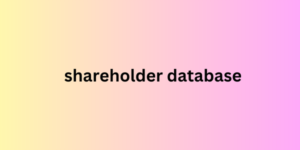Understanding the differences between price and value can serve as a starting point for pricing a transaction, guiding negotiations, and tempering expectations when the price offered does not match theoretical value.
Price is simply the total consideration paid by the buyer to the seller. Calculating value, on the other hand, is a more theoretical and mathematical exercise. While determining the value of a business is difficult, it remains a useful starting point for negotiations and obtaining financing.
My goal in this blog post is to provide an overview of the most commonly used methods for valuing a business, explain the connections between value and price, and help you make an informed decision on your next transaction.
What is value?
The Institute of Business Valuators (CBVs) defines the theoretical value (also known as the indicative value) of a business as its "fair market value." This is "the highest amount at which a business would trade between a willing and able buyer and seller in an open and free market, when neither party is under compulsion to buy or sell and both parties have reasonable knowledge of the facts."
Price is what you pay, and value is what you get.
Warren Buffet
To calculate this theoretical value, the appraiser must make assumptions about how the open market would react, who the potential buyers are, how many years the business can continue to operate, etc. These assumptions may differ from how the transaction plays out once the sale process begins, which can result in differences between the value and the price.
How to calculate the value?
To calculate the theoretical value of a business, the shareholder database appraiser must consider the business's operations, its industry, market dynamics and many other factors, and then incorporate these assumptions into one or more of the following three main valuation methods:

Profit-based method
This method (also called the cash flow method) is based on a company's future cash flows . It uses a projection of the company's future cash flows and assesses the likelihood that those cash flows will occur. The earnings method is often used to value companies that may have significant goodwill or intellectual property value, which can often be estimated based solely on the company's potential future performance. This is particularly true for companies that manufacture software.
Asset-based method
This method is based on the value of the company's assets , after deducting all of its liabilities : this is called the net asset value. In other words, if all of the assets were sold today at fair market value and the proceeds were used to pay debts, obligations, and taxes, what would be left ? The asset-based method is often used to value companies that have many physical assets but no goodwill or intangible assets, such as construction companies or real estate holding companies.
Market-based method
This method seeks to estimate the value of a company using measures from comparable companies and recent transactions. The quality of the market-based valuation depends on the relevance of the comparison between the selected market measures and the measures of the company being valued as well as the availability of public data on the selected companies and transactions. For this reason, the market-based method is often used in conjunction with the earnings-based method in a valuation.
The end product of the valuation, regardless of the calculation method used, is the theoretical calculation of the value of the company or a range of values based on very specific assumptions. The price can only be determined once the company is faced with a sale process on the open market.
Why is value different from price?
Although theoretical value is often comparable to the final price paid on an open market, there are complex factors that can explain the discrepancies between price and value. Depending on the case, the price may be higher or lower than the appraisal estimate. The CBV Institute suggests the following as well-established reasons why price does not always equal value:
Buyers are unique
The value calculation assumes that buyers have equal skills, when in reality, potential buyers have different knowledge, negotiating skills and financial assets.
Emotions can trump facts
Calculating value involves a reasonable investor seeking to maximize return; however, since buyers and sellers are human, emotions can have a strong influence on the decision-making process, regardless of the results of objective analysis.
Strategic buyers can add value
Many buyers acquire a business with the intention of integrating it into their existing operations, which can produce greater value than if the acquired business continued to operate separately. Strategic buyers are therefore often able to pay more than other buyers, at a price that may exceed the theoretical value.
The price does not represent only liquidity
The price may not be all cash. Instead, it may consist of stock, an earnings-earnings clause (seller financing), or other structures that could be used to offset the “gap” in values during negotiations between the buyer and seller.
Be prepared for price to differ from value
If you are looking to sell your business , a theoretical valuation can help you understand what your business is worth to help guide the negotiation process. However, the only way to determine a true price is usually to put your business through the process of selling it on a large scale in the marketplace.
Determining a range of values, key personal drivers and goals, and the intangible value of the business up front provides you with the information you need to make a prudent decision. Given the number of methods that can be used and the potential complexity, it is helpful to engage independent valuation professionals to quantify and understand your valuation.
However, it is important to be prepared that the valuation of your business , carried out in a theoretical context, will differ from the final price you will obtain.
